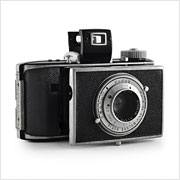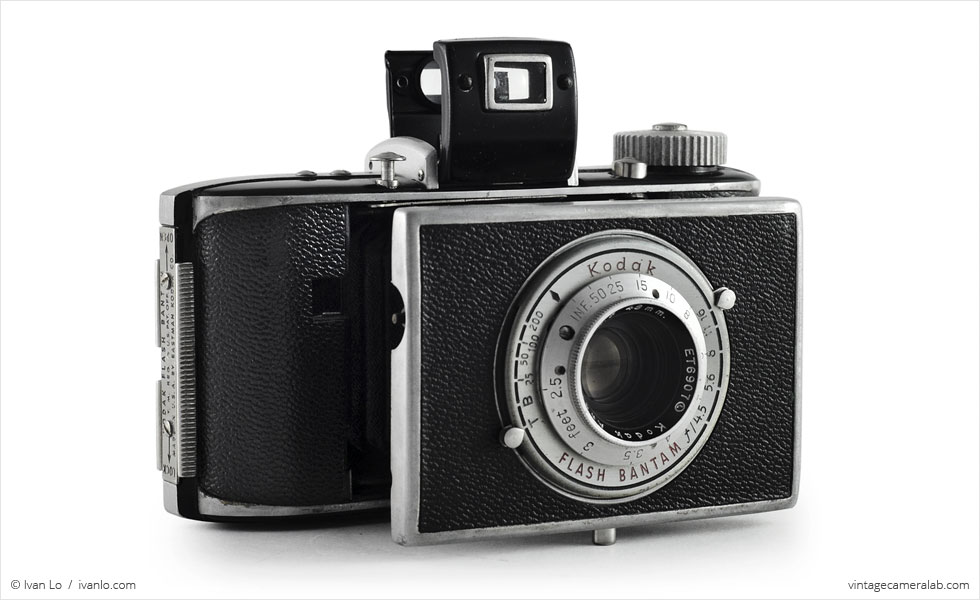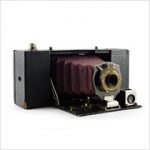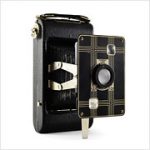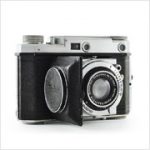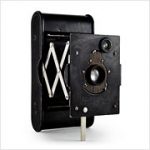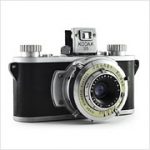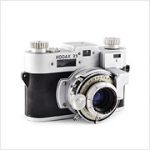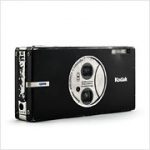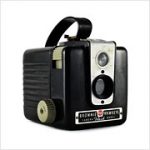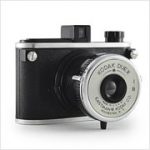Kodak Flash Bantam Specifications
| Manufacturer: | Eastman Kodak Company |
| Origin: | USA |
| Made in: | Rochester, NY, USA |
| Introduced: | 1947 |
| Type: | Folding, Viewfinder |
| Format: | 828 Film |
| Dimensions: | 11.7 x 6.5 x 4 cm (closed) |
| 11.7 x 8.1 x 6.9 cm (open) |
Kodak Flash Bantam Overview
The Kodak Flash Bantam is a compact folding camera introduced in 1947 by Eastman Kodak. As the name suggests, the Flash Bantam is the flash-ready variant of the original Bantam line of compact folding cameras which have no flash synchronization capabilities. Like previous Bantams, this model also utilizes 828 film, the unperforated 35mm film that Kodak developed but ultimately abandoned in favor of the now-standard 35mm cartridge.
The top of the Flash Bantam is home to a film winding knob on the user’s left hand side, followed by a round metal button that releases the lens, then the flip up viewfinder, and then the shutter button. When the lens is extended, a shutter cocking lever and flash sync post can be found partially hidden behind the lens board. The ring immediately surrounding the front element of the lens—a Kodak Anastar 48mm f/4.5 in the case of this later model—tunes the focus while small metal tabs on the next ring out control the aperture and shutter speed. The latch that opens the film door is located on the user’s right hand side of the camera. A small film wind release button can be found on the back as well as a green window to check the exposure count. A standard tripod mount is on the bottom.
I purchased this Kodak Flash Bantam at a local flea market for $10. Having never held a Bantam in my old hands before, I was very impressed by the build quality and the excellent condition of my example. The springs that release the lens still have a lot of tension, the shutter still fires, and the camera is overall very clean.
Find your very own Kodak Flash Bantam on eBay.
McKeown, James M. and Joan C. McKeown’s Price Guide to Antique and Classic Cameras, 2001-2002. (Grantsburg, WI, USA: Centennial Photo Service, 2001), p 323.
